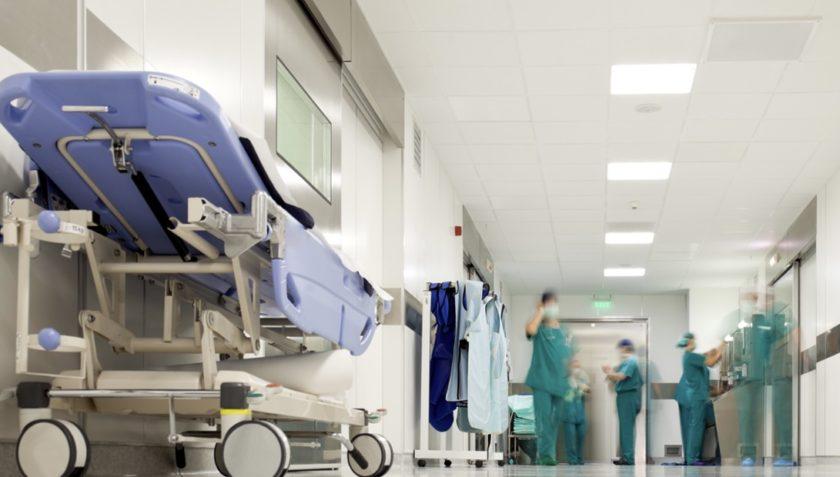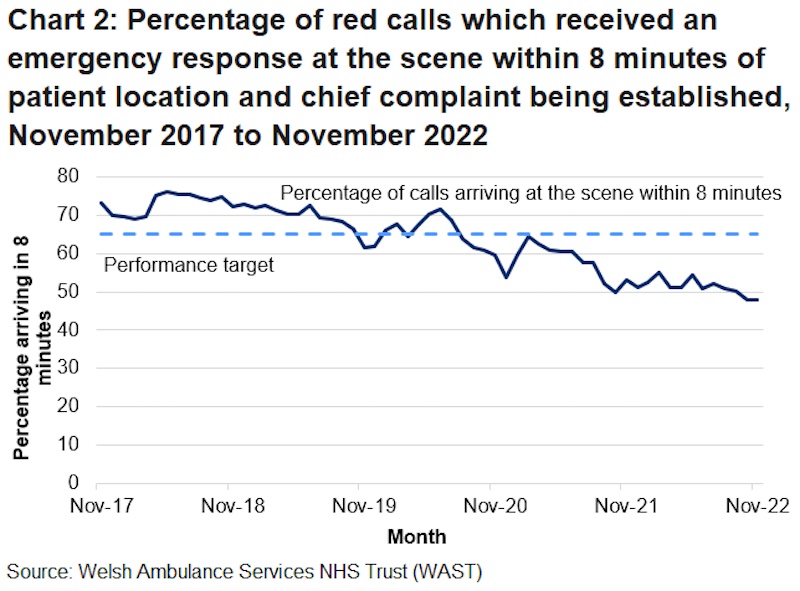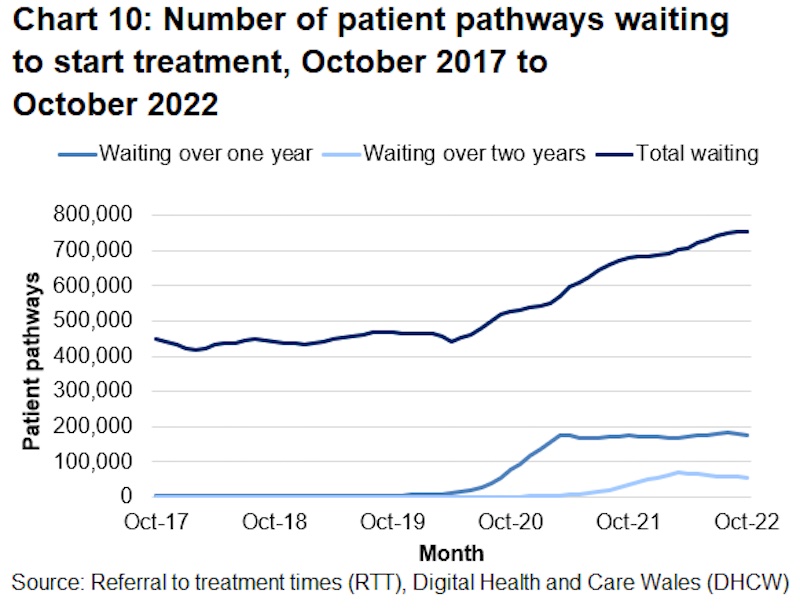Welsh Government urged to “get a grip on the NHS and stop breaking all the wrong records”

The Welsh Government has been urged to “get a grip on the NHS and stop breaking all the wrong records.”
It comes following the release of November’s NHS figures which show that despite some areas, the ambulance service, 111 and hospitals continue to face an overwhelming demand.
Today’s data shows that the Wales Ambulance Service recorded its joint worst response on record for attending category red (immediately life-threatening) calls within eight minutes.
November matched the 48 per cent set in October – below the Welsh Government target of 65 per cent.
The ambulance service received 34,850 emergency calls last month – an average of 1,162 calls per day. This is a decrease of 51 (4.2 per cent) calls on average per day than the previous month, and 123 (9.6%) fewer calls on average per day than the same month last year.
Of these calls 4,602 were classed as immediately life threatening – the highest number of red calls ever made in a month,

The Welsh Government has a target of 95 per cent of new patients spending less than four hours in emergency departments from arrival until admission, transfer or discharge.
Across Wales there was a slight improvement in the number of people waiting less than four hours in emergency departments, which rose from 66.6 per cent to 67.3 per cent
At the Wrexham Maelor Hospital 53.8 per cent of patients at the emergency department were seen within four hours – an increase on the 50 per cent recorded in October.
Elsewhere in north Wales 48.6 per cent were seen within four hours at Ysbyty Glan Clwyd and 58.6 per cent at Ysbyty Gwynedd.
Against the eight hour target 73.7 per cent were seen at the Wrexham Maelor Hospital and 83.4 per cent within 12 hours.

The number of patient pathways / patients waiting to start treatment fell slightly in October from just under 755,000 to around 753,000, – the first decrease since April 2020.
Welsh Government data suggests that although there are 753,000 open patient pathways, there were just over 589,000 individual patients on treatment waiting lists in Wales. This was a decrease of almost 1,600 patients from the previous month.
Today’s figures have seen opposition parties renew calls for the Welsh Government to address the long-standing issues in the NHS – which has this month seen ambulance and hospital staff walkout over calls for fair pay and improved working conditions.
Welsh Conservative and Shadow Health Minister Russell George MS said: “Is it at all surprising to see doctors consider striking alongside nurses, ambulance workers, and midwives in Labour-run Wales when we see numbers like this?
“This cost-of-pain crisis is a living nightmare for those forced to wait months, if not years for treatment, while patients are scared about whether they will get an ambulance or not, or whether they will be seen in A&E in a reasonable time.
“But it is clearly taking a toll on NHS staff too who feel like they are entering a warzone every day, but nothing ever changes – all because of a Labour Government that said it would be “foolish” to prepare the easing of Covid restrictions and the demand that would come after several lockdowns.
“Labour need to get a grip on the NHS and stop breaking all the wrong records.”

Plaid Cymru’s spokesperson for health and care, Rhun ap Iorwerth MS said that with the NHS at a breaking point, something “has to give.”
He said: “There have been long-standing problems with patient flow through hospitals, and with increased pressure on our emergency service and more and more patients being added to waiting lists, our hard-working staff have given everything they can.
“The strikes from nurses and ambulance workers are a last resort from dedicated staff who have patient safety at the heart of their actions. But something has to give, and Welsh Government should be doing everything in its power to ensure it’s not the workforce.
“The latest news that doctors may join nurses and ambulance workers on the picket line has to be a wake-up call for Welsh Government, and they must be prepared to take radical action if they are truly committed to facing up to the long-standing problems within our NHS. Let’s not forget that this decline in our NHS has happened on their watch.
“Staff and patients need to know why they should have any confidence in the Welsh Government’s ability to improve waiting times, support our workforce, and to provide the stability and sustainability that our health and care service so desperately needs.”

A Welsh Government spokesperson said that despite the demand “progress continues to be made on the longest waits.”
The spokesperson said: “October saw the first decrease in the number of patient pathways waiting to start treatment since April 2020. Although record levels of demand on the ambulance service were reported in November there was also some improvement in emergency department performance.
“Progress continues to be made on the longest waits. Two year waits for treatment have fallen for the seventh month in a row and are down by 23% since the peak in March. The proportion of pathways waiting less than 26 weeks increased this month with the number waiting more than 36 weeks falling.
“The number of pathways waiting longer than one year for their first outpatient appointment dropped for the second month in a row. An all-time record 14,412 people were seen and told they don’t have cancer; this is 4% higher than the previous month. Whilst performance decreased slightly against the 62-day target, more people started their first definitive cancer treatment in October 2022 compared to September 2022.
“Our ambulance service and emergency department staff remain under increased pressure. November saw the highest number and proportion of ‘red’/ immediately life threatening calls on record and an increase in the total number of attendances across facilities similar to pre-pandemic levels.
“However, performance improved against the four hour and twelve hour targets, and there was a reduction in the average wait for an assessment by a doctor.
“Whilst we acknowledge ambulance performance is not where we expect it to be, we are driving system improvements, including extending same-day emergency care services to open seven-days a week, improving management of 999 patients on the phone, and recruiting more staff. Without all this the pressure on the system would be even greater.”
Spotted something? Got a story? Email: [email protected]
Latest News
